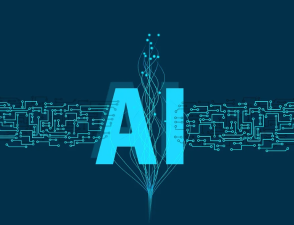So, how deep is AI's penetration into the Internet ecosystem?
In the search field, the transition from "keyword matching" to "intention understanding"
Google's anxiety is not groundless. The technical foundation of traditional search engines is based on crawler web indexing and keyword matching, while AI-driven search assistants (such as Bing Chat) can already achieve natural language understanding, knowledge reasoning and multi-round dialogue.
Statista data shows that in 2025, the global voice search accounted for 41% of the total search volume, of which 62% of users prefer to directly obtain AI-generated answers rather than web links. This behavioral migration caused the number of search engine ad clicks to drop by 18% year-on-year, forcing Google to launch the SGE search generation experience for strategic defense.
Data confirmation of market structure reshaping
According to the latest IDC report, the global AI and Internet integration market size will reach US$478 billion in 2025, with a compound annual growth rate of 42%, of which the three major fields of intelligent search, AIGC, and intelligent recommendation will contribute 73% of the share.
Among the sub-industries, the AI penetration rate in the e-commerce field is the highest, reaching 68%, while the social content field is 54% and the search engine is 49%. It is particularly noteworthy that the migration of user time
The investment data at the enterprise level is more convincing. Google's first quarter 2025 financial report shows that AI-related R&D investment accounts for 37%, higher than the sum of cloud computing and hardware businesses; Tencent disclosed in its financial report that AI middle platform has supported more than 90% of core products, increasing overall R&D efficiency by 35%.
This resource tilt brings about a change in business model - Adobe's Firefly AI creative tool has increased the proportion of subscription service revenue from 68% to 79%, proving that AI can reshape the way companies create value.
The future Internet will be an intelligent ecosystem with deep collaboration between people and AI - AI is responsible for processing standardized and scaled information tasks, and humans focus on creative and emotional value creation.
This division of labor is not a replacement, but a complement, just as machines did not eliminate workers during the Industrial Revolution, but liberated humans from repetitive labor and devoted themselves to more creative work.
The future of the Internet does not lie in whether AI can completely replace humans, but in whether we can build a digital civilization that balances technology and humanity, so that intelligent technology can truly become a tool to expand human possibilities, rather than a force to alienate humans.
In this transformation, those companies and individuals who can keenly capture technological trends and adhere to humanistic values will become the leaders of the new Internet era.

